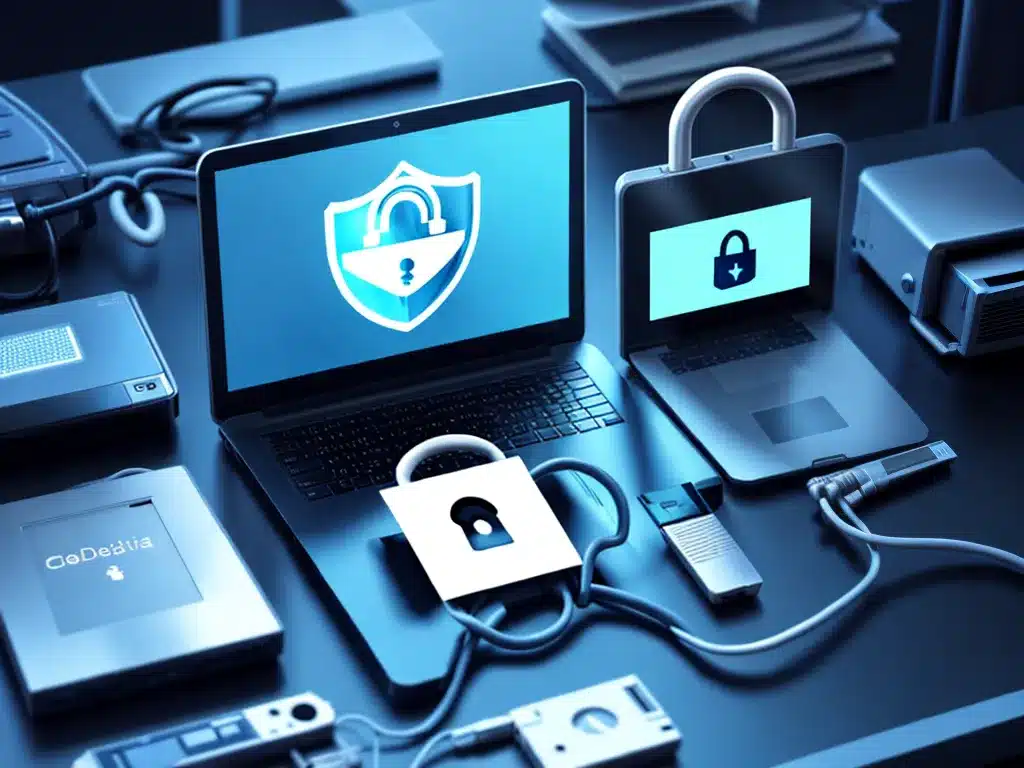Data breaches and cyber attacks are on the rise. As a business owner, I need to make sure my company’s data is secure. Here are 5 must-have data security tools I recommend for any business:
1. Encryption
Encryption is essential for securing data in transit and at rest. Here are some top encryption tools:
Transport Layer Security (TLS)
TLS encrypts data in transit over networks and the internet. I use TLS to secure my website and email communications.
Disk Encryption
Disk encryption encrypts data stored on hard drives and storage media. BitLocker for Windows and FileVault for Mac are good options.
End-to-End Encryption
End-to-end encryption protects data while in use within apps. Signal and WhatsApp provide end-to-end encrypted messaging.
2. Password Manager
Weak passwords are a major vulnerability. A password manager generates strong unique passwords for all my accounts. LastPass and 1Password are highly rated.
3. Virtual Private Network (VPN)
A VPN encrypts internet traffic and masks my network identity. This protects data in transit over public Wi-Fi and cellular networks. NordVPN and ExpressVPN are top choices.
4. Backup
Regular automated backups ensure I can recover from data loss due to hardware failure, ransomware, or mistakes. Acronis, Carbonite, and Backblaze are excellent backup solutions.
5. Antivirus Software
Antivirus software detects and blocks malware like viruses, spyware, and ransomware. Bitdefender, Kaspersky, and Malwarebytes offer robust antivirus protection.
I also implement firewalls, multi-factor authentication, access controls, intrusion detection systems, and data loss prevention to further secure my business data. But these 5 tools provide core safeguards that every company should have. Protecting sensitive customer, financial, and operational data is a top priority for my business.
Why Data Security Matters
Data breaches can lead to:
-
Financial loss – Fraud, fines, lawsuits
-
Reputational damage – Loss of customer trust
-
Regulatory penalties – For non-compliance with privacy laws
-
Business disruption – Downtime, recovery costs
Some key data security best practices:
- Classify data by sensitivity level
- Limit employee access to sensitive data
- Encrypt data in transit and at rest
- Use secure remote access tools
- Train staff on security protocols
- Monitor for threats and anomalies
Implementing a Defense-in-Depth Strategy
No single tool can fully protect against modern cyber threats. The key is implementing layered data security defenses. Important elements of a defense-in-depth security strategy include:
-
Perimeter security – Firewalls, intrusion prevention systems
-
End point protection – Antivirus, disk encryption
-
Access controls – Role-based access, multi-factor authentication
-
Data protection – Encryption, tokenization, masking
-
Monitoring and response – Security information & event management, incident response plans
-
Employee training – Security awareness, cyber hygiene
-
Vulnerability management – Patching, configuration hardening
-
Disaster recovery – Backups, business continuity planning
Conclusion
Safeguarding data requires constant vigilance and the right set of security tools. Start with these 5 essentials: encryption, password manager, VPN, backup, and antivirus. Build out a layered defense combining technology, policies, and staff training. Your data and business will be better protected from modern cyber threats.












